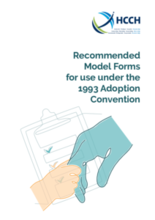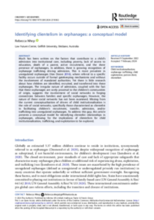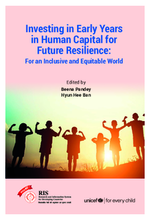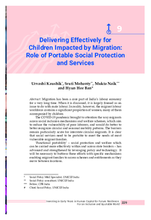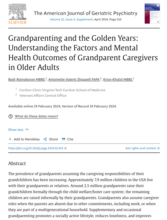Displaying 251 - 260 of 10392
Ces Formulaires modèles renferment des informations importantes concernant les garanties établies par la Convention Adoption de 1993, telles que le consentement des personnes, institutions et autorités dans la procédure d'adoption (art.
The Model Forms are intended to simplify and facilitate compliance with the 1993 Adoption Convention by assisting Contracting Parties in the collection of relevant information. They contain important information regarding safeguards established by the 1993 Adoption Convention.
This report represents a summary of presentations and discussions held throughout the two days of the BICON International Conference on Alternative Care for Children in Asia 2023.
This study addresses children’s right to family life when placed in public care and questions how the Child Welfare Service and the Child Welfare Tribunal understand and facilitate this right within a Norwegian context.
This article presents a conceptual model for identifying clientelist relationships in orphanages, allowing for the implications of clientelism for child institutionalisation, trafficking, and exploitation to be explored.
The focus of this study was to understand youths’ processes of resilience-development through relationships with care professionals in the child welfare system. In this study, the authors held 15 narrative interviews with LGBTQ+ youth between the ages of 14 and 21 years that were living in residential care in Spain.
This study based in Canada explored views on the changes in child safety reporting and interventions with newcomer families during the COVID-19 pandemic.
This book focuses on the urgent need for global investments in young children for realizing sustainable development and equitable outcomes for all. Access to services and participation, equity and inclusion are key drivers to realize the rights of the child.
This chapter highlights the need for social protection and welfare benefits to be portable with the ability for migrants families to access entitlements as they move between locations. This chapter focuses on how this is implemented in India's labour economy.
This report outlines the various trends and reasons for the rise of grandparents involved in caring for grandchildren in the U.S. It also describes the different types of households involving grandparents and grandchildren, including grandfamilies, skipped-generation, and three-generation families, and summarize various theories of grandparent stress including role strain theory and social exchange theory.


